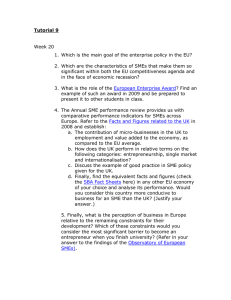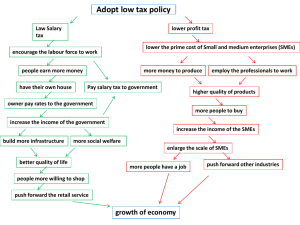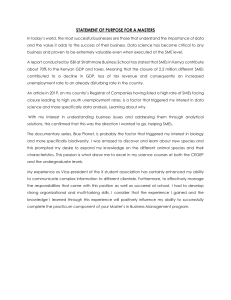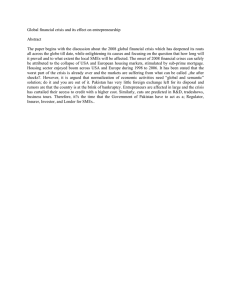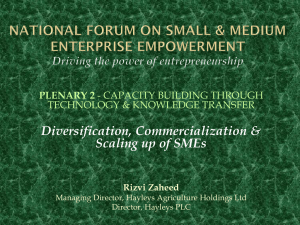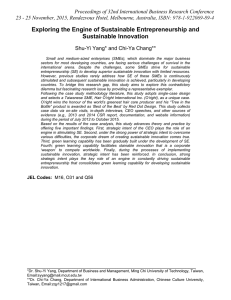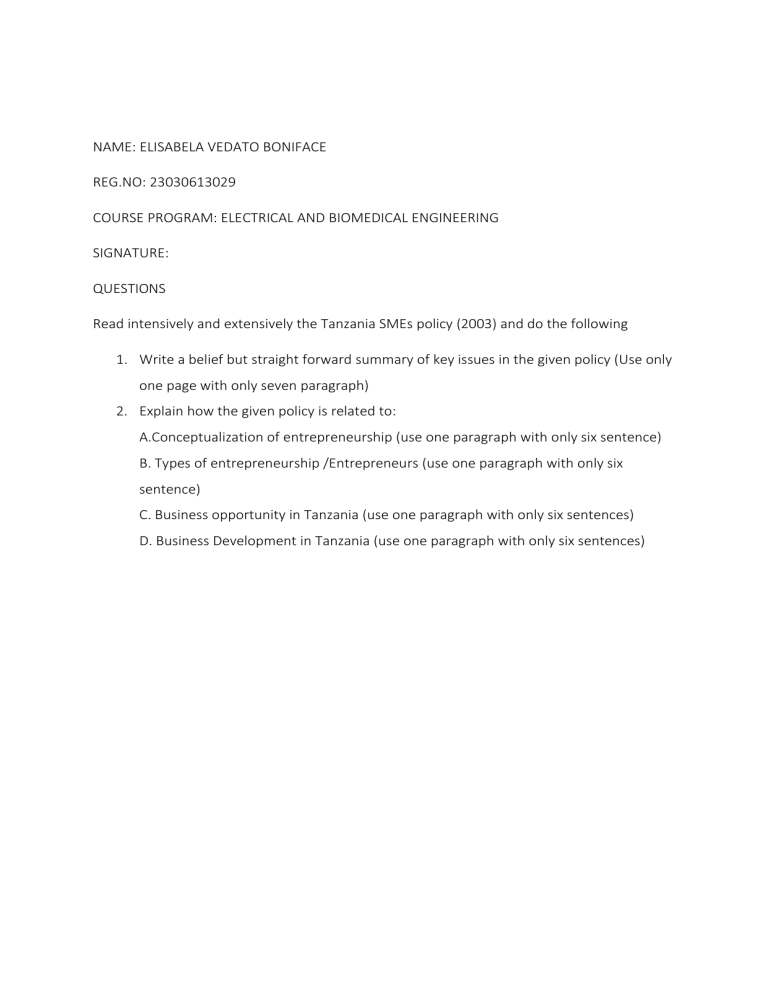
NAME: ELISABELA VEDATO BONIFACE REG.NO: 23030613029 COURSE PROGRAM: ELECTRICAL AND BIOMEDICAL ENGINEERING SIGNATURE: QUESTIONS Read intensively and extensively the Tanzania SMEs policy (2003) and do the following 1. Write a belief but straight forward summary of key issues in the given policy (Use only one page with only seven paragraph) 2. Explain how the given policy is related to: A.Conceptualization of entrepreneurship (use one paragraph with only six sentence) B. Types of entrepreneurship /Entrepreneurs (use one paragraph with only six sentence) C. Business opportunity in Tanzania (use one paragraph with only six sentences) D. Business Development in Tanzania (use one paragraph with only six sentences) 1. Access to Finance: the policy aimed to enhance access to financial service by establishing specialized financial institution, providing credit guarantee schemes, and promoting microfinance institutions. Business Development service: The policy aimed to improve the availability and quality of these services to enhance the competitiveness of SMEs. Infrastructure Development: The policy emphasized the need to improve infrastructure to support SME development and reduce operational costs. Market Access and Linkages: The policy aimed to promote market access for SMEs through various measures, such as facilitating participation in trade fairs, promoting business linkages, and supporting export – oriented SMEs. Regulatory Environment: The policy aimed to simplify and streamline regulations, reduce bureaucratic procedures, and promote a conductive business environment for SMEs. Technology and innovation: The policy aimed to promote technology diffusion, encourage innovation, and facilitate access to information and communication technology (ICT) for SMEs. Capacity Building and Skills Development: The policy emphasized the need for capacity building programs, vocational training, and entrepreneurship education to enhance the skills of SME owners and employees. 2. This policy recognized their significant contribution to job creation. Poverty reduction and overall economic development. The policy acknowledges that entrepreneurship is the driving force behind the establishment and growth of SMEs.it recognizes that entrepreneurs play a vital role in identifying business opportunities. Mobilizing resources, taking risks. Therefore, the policy aims to create an enabling environment for entrepreneurship to thrive. The SMEs policy may provide support and resources for various types of entrepreneurship. Such as social, technology and traditional by offering assistance. Also may create opportunities for different types of entrepreneurs. Including women, youth and entrepreneurs from marginalized communities.by providing access to funding, training, and market opportunities. And also the SMEs policy may also address the regulatory environment for entrepreneurs, making it easier for individuals to start and operate business. The SMEs policy aims to promote providing support inform of funding training and technical assistance. Also may include initiatives to help small and medium sized enterprises access local and international market. This can create business opportunities for SMEs to expand their customer base and increase their revenue. The policy may emphasize innovation and entrepreneurship. Creating opportunities for business to develop new product, service and business models. And also can lead to job creation and economic growth. The SMEs policy aims to support by offering funding, training, and technical assistance. This support can help SMEs to grow, expand and contribute the overall economic development of the country. The SMEs policy may emphasize the importance of entrepreneurship and innovation. By promoting an entrepreneurial culture and providing incentives for business start-up. Also the policy may include initiatives to improve access to finance for SMEs, such as through loan programs or financial incentives. This can enable SMEs to invest in their business, expand their operations and contribute to the development of various sectors of the economy. REFERENCES United Republic of Tanzania, Ministry of Trade (2003) : Small and Medium Enterprise Development Policy.
